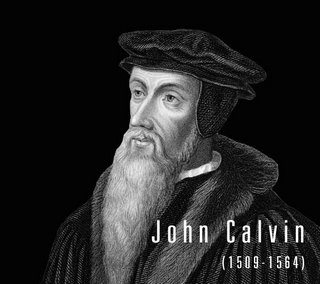Quote of the week

French theologian John Calvin
( July 10 1509—May 27 1564) was after Martin Luther the guiding spirit of the Protestant Reformation. If Luther sounded the trumpet for reform Calvin orchestrated the score by which the Reformation became a part of Western civilization. Calvin studied in Paris probably from 1521 to 1526 where he was introduced to humanistic scholarship and to appeals for reform of the church. He then studied law at his father's bidding from about 1525 to 1530. When his father died in 1531 Calvin turned immediately to his first love - study of the classics and theology. Between 1526 and 1531 he experienced a distinctly Protestant conversion. "God" he wrote much later "at last turned my course in another direction by the secret rein of his providence." Calvin's first published work was a commentary on Seneca's De Clementia (1532). A profusion of influential commentaries on books of the Bible followed.
“God preordained, for His own glory and the display of His attributes of mercy and justice, a part of the human race, without any merit of their own, to eternal salvation, and another part, in just punishment of their sin, to eternal damnation”





















